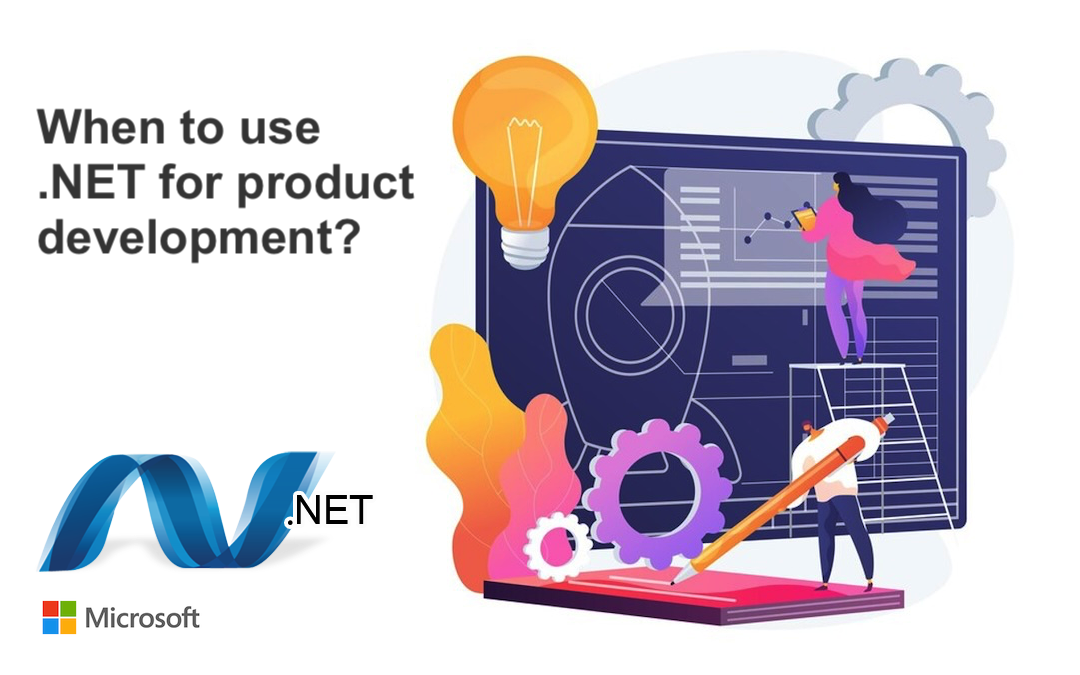
.NET is a popular application development framework from Microsoft that can be used to build a wide range of business applications and products. With its comprehensive base class libraries, language support, a rich ecosystem of tools and third-party libraries, .NET enables rapid application development and simplifies the process of building robust and scalable products.
However, .NET may not always be the best choice for every product. The decision to use .NET depends on various factors such as target platforms, skill sets, project requirements and constraints. This article provides a guide on when .NET is a suitable option for product development and when alternative technology stacks may be more appropriate.
Factors to Consider When Choosing .NET
Target Platforms
A key factor is the platforms and devices you intend to target with your product. .NET applications primarily run on Windows, with the .NET Framework runtime providing the execution environment. .NET Core, however, offers cross-platform capabilities and can be run on Linux and macOS too.
So, if Windows environments are your primary target, .NET framework is a convenient choice. The framework is deeply integrated with Windows, and its tooling, management and administration features are aimed at Windows servers and desktops.
For mobile apps targeting Android, iOS or web applications meant for diverse platforms, .NET may not provide the best fit out of the box. Multi-platform mobile development frameworks like React Native and Flutter, as well as web tools like JavaScript/TypeScript, may be better suited in such cases.
Internal Skill Sets
The skills and experience your team possesses is an important determinant. .NET has a learning curve for developers without prior .NET or C# experience. If you have seasoned .NET developers with domain experience in building large line-of-business applications, it makes sense to leverage this with .NET-based products, too. Alternatively, you may opt to use .NET developers outsourcing for your developer resources.
However, for small teams starting out, picking up .NET can slow down initial product development if other web or mobile skills predominate. Evaluating existing skill sets allows for balancing tradeoffs.
Time-to-Market Considerations
The extensive libraries, code samples, documentation and abundant reusable components enable rapid application development with .NET. For enterprise products expected to integrate complex business functionality, .NET allows delivering functional working software quicker.
However, for simpler consumer-facing products that do not require elaborate infrastructure, lighter and more agile alternatives may be better suited to tap markets faster.
Access to .NET Expertise
While early-stage consumer web or mobile products can easily leverage abundant JavaScript or React Native skills, finding expert .NET developers can be more challenging. This is especially true for startups not based in tech hubs.
So, the availability of .NET skills and resources should be factored in for product development and subsequent maintenance enhancements. Offshore outsourcing is an option, albeit with overheads.
Interoperability Requirements
.NET provides extensive interoperability with native Windows APIs, COM components, databases and XML/web services. For products needing integration with diverse legacy systems, Windows infrastructure or on-premise data stores, .NET makes the process seamless.
But for modern containerized applications leveraging cloud data services, lighter runtimes like Node.js suffice. If interoperability is not a prime concern, alternate stacks may work better.
Ongoing Management Overheads
.NET deployments typically need IIS configuration Windows Server administration with elevated security patches and updates. Contrast this with the lower overheads of cloud-based deployment models for Java, JavaScript or Python stacks. Startups need to account for the total cost of ownership tradeoffs in the long term.
When .NET Works Best for Products
Line-of-Business Enterprise Applications
.NET shines when building large business applications like ERPs, ecommerce portals, insurance claim systems etc. Such applications typically involve:
- Complex validation, workflows and state management
- Advanced data visualization features
- High-performance transactional systems accessing databases
- Flexible reporting with exports to Excel or PDF
- Fine-grained role-based access control and security
- Integration with web services, messaging systems and legacy systems
.NET provides the most efficient framework for enterprise application development, with C# offering the simplicity of Java but with higher productivity and performance.
Windows Desktop Applications
For building Windows desktop applications with rich UI capabilities, .NET Framework combined with Windows Presentation Foundation (WPF) is the best choice. WPF leverages GPU acceleration for fluid UIs not easy with web technologies. This makes .NET ideal for desktop tools, editors, data visualization apps etc.
High Throughput Services
.NET has a scalable runtime optimized for multi-threaded scenarios with high throughput requirements. Large ecommerce sites, trading systems, IoT hubs, and backend services like order processing, which need robustness and low latency responses, are ideal candidates for .NET-based product development.
When Alternate Stacks May Work Better

Mobile Applications
For iOS or Android mobile apps, native platforms like Swift/Kotlin provide best usability. Multi-platform approaches like React Native are portable across iOS, Android and web. Products targeting mobility across devices are therefore best served by alternatives compared to .NET.
Modern Web Applications
For modern web applications built around microservices architectures, container orchestration and cloud data services, Node.js and Python are better suited. Their lightweight runtimes integrate smoothly with DevOps practices via continuous integration/deployment pipelines.
Simple CRUD-Based Products
For basic content sites or simple data-oriented consumer products that do not require sophisticated business logic, using Django, Ruby on Rails, or PHP can accelerate launch. Their lower learning curves combined with rapid scaffolding out-of-the-box make them ideal for basic CRUD products to get to market quickly.
Startups and Small Teams
Startups building their first product often iterate fast to find product-market fit. Small teams require agile frameworks to try ideas quickly. In such cases, Node.js, Django or Ruby provide enough capabilities without the overhead of learning .NET effectively.
Conclusion
.NET is a flexible platform ideal for creating business apps such as ERPs, ecommerce sites and high-volume back-end processing applications. It brings ease of development, enhanced efficiency and direct integration with Windows.
However, for consumer web or mobile applications that run on the cloud or support multiple platforms, there are other better open-source stacks, such as Node.js and Python. Some of the factors that influence the decision include the skills within the team, target environments, and the level of product complexity.
The strengths of .NET can be compared to a project's goals and limitations in order to make the right decision. As enterprises transition more applications to cloud infrastructure, .NET Core has closed many gaps, making .NET relevant to modern microservices-based architectures as well. However, it is not necessary that startups and projects that are better off in other languages should be constrained to .NET by default.
Other factors, such as tooling, documentation, and availability of .NET developers, are also crucial for consideration, especially for small teams. In balancing all these factors, as discussed above, it becomes clear which technology is suitable for a certain product roadmap. Instead of accepting .NET without doubt, evaluating it with respect to the requirements and the capabilities of the team makes it possible to use it where it offers the best development environment for the products.
Share this post
Leave a comment
All comments are moderated. Spammy and bot submitted comments are deleted. Please submit the comments that are helpful to others, and we'll approve your comments. A comment that includes outbound link will only be approved if the content is relevant to the topic, and has some value to our readers.

Comments (0)
No comment